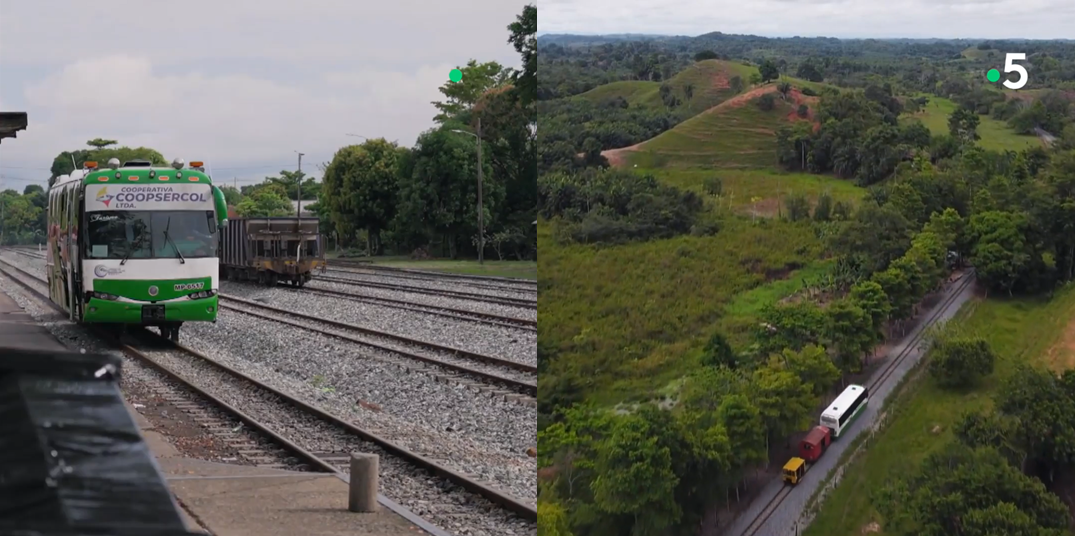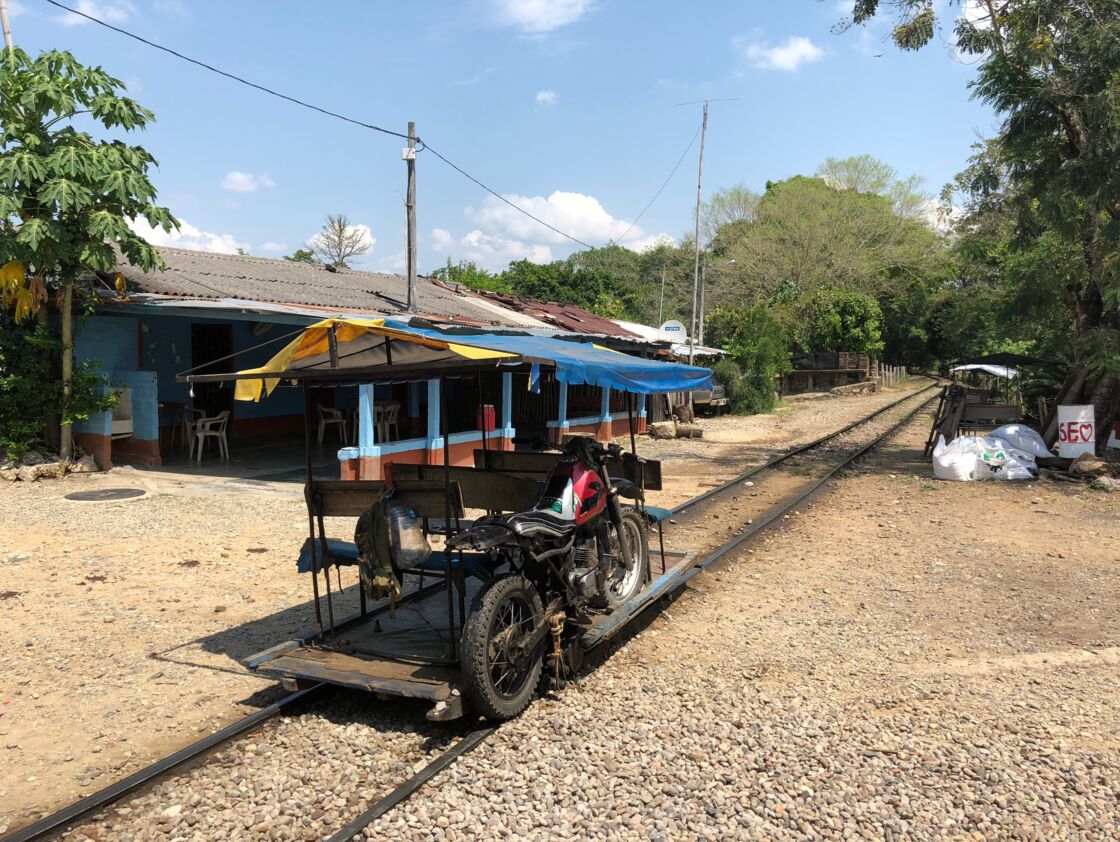
Buses on Rail Tracks – Transportation Mode in Rural Colombia
Colombia’s rural areas are not connected by a road network. Trains were the primary mode of transportation for many of these villages, allowing them to remain connected. However, due to poor national policies, the government closed down the national rail company, leaving thousands of people with no other option for transportation.
People stepped forward and formed a cooperative to manage local transportation. They didn’t have access to rail cars, so they came up with an idea and put the bus on rail track. People in Colombia use the bus-train mode of transportation as their primary mode of transportation.
Bike-Train is another popular mode of transportation in this area. The bike is placed on a board that can run on the track.

Philippe Gougler, Report with French.TV is covering the interesting stories about rail network around the world. He discovers a country, its inhabitants and its landscapes, along a mythical or, on the contrary, unknown railway line.
The video is in French but you can read transcript in English:
Reporter: Buses transformed into trains, It is a South American specialty. The sofa and the living room table. It’s beautiful, it’s a real bus with room for luggage underneath.
Here. it’s not bad, in fact, it is its comfort.
Ola Hello, I can talk to you for video, joke like Diego.
Train Driver: Yes,
Reporter: When you feel more bus driver or train driver?
Train Driver: No no. I feel like a train driver. I never even drove the bus. Since there are not many train drivers who have a steering wheel, but a steering wheel like this is classy and it helps me to brake. And then I can maintain, it protects me.
Reporter: Ok and but you told me the steering wheel, it serves as a serious brake.
Train Driver: When you turn it, it brakes. In fact, it’s not with the steering wheel that I brake. I use this lever there to brake. It’s a booster brake.
Reporter: Ah ok, so the steering wheel is useless. The turn signal is the brake and what is the gear lever for?
Train Driver: So it’s the speeds. First, second, third, fourth, so it remained the speed. Oh yes, full speed up to 5th.
Reporter: OK very good. Careful, straight ahead.
Train Driver: In Colombia, you come across all kinds of things on the tracks. Always remember that anything is possible. We really come across everything on this railway line. There are many trains like ours there. There are also motorcycles on the tracks. It’s illegal, but there are people who do it anyway.
Reporter: So, there are collisions.
Train Driver: Ah yes, so you have to be very, very vigilant when you’re in your place. Yes, you have to be very careful. We do not know what may be hiding behind the trees. Sometimes there are people or cows, all kinds of animals.
Reporter: And do you like driving this funny machine?
Train Driver: But for me, it is a great pleasure to serve the community. All like you, prolonged in my interest and wonder. I wish there were machines like this all over Colombia, and not just in this region. It would be really nice if the train culture came back here. Ok, but a word of hunt gracias. Through me you have graceful my. And if the driver is proud to serve his community, it is because this train bus serves certain villages which are only connected to the rest of the country by rail. There is no road. This train bus is an essential vital link.
Reporter: Why was the train removed from this track?
Train Driver: The trains have disappeared due to bad decisions by the Colombian government. In fact, there was a liquidation of the national company which managed the railways and the cooperative in Colombia. It appears from this action that many people have found themselves unemployed and some have decided to formed a cooperative. Everyone gave what they could – a little soup or a little time etc. to continue to provide service. So, it’s a cooperative that was created so as not to abandon the villages that are only served by this railway line. It was a generous gesture. It’s a noble action, it’s social.
Reporter: Listen, I wish you with all my heart that it works and that you can continue to be of service to all these passengers. Thank you.


